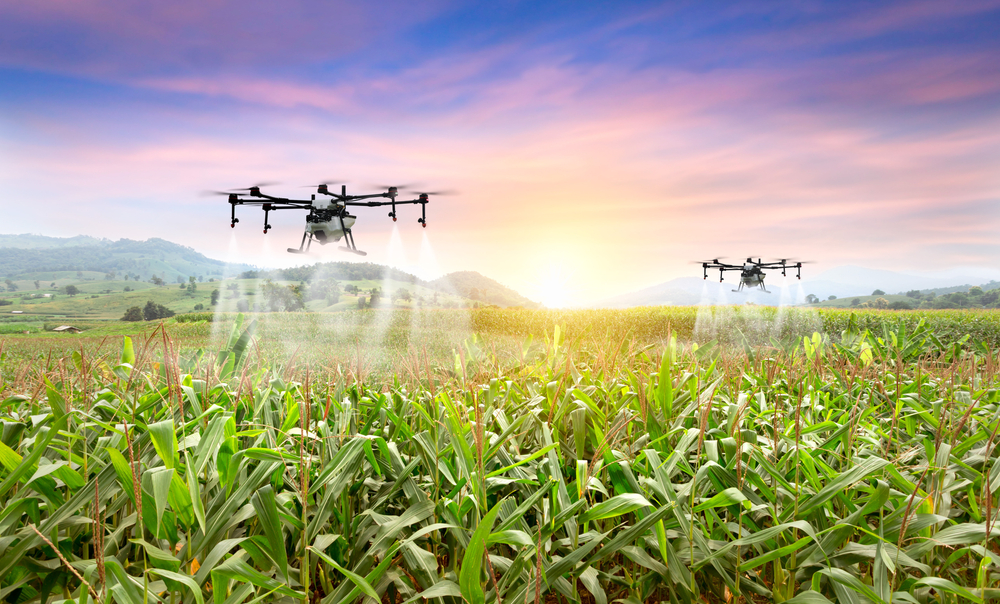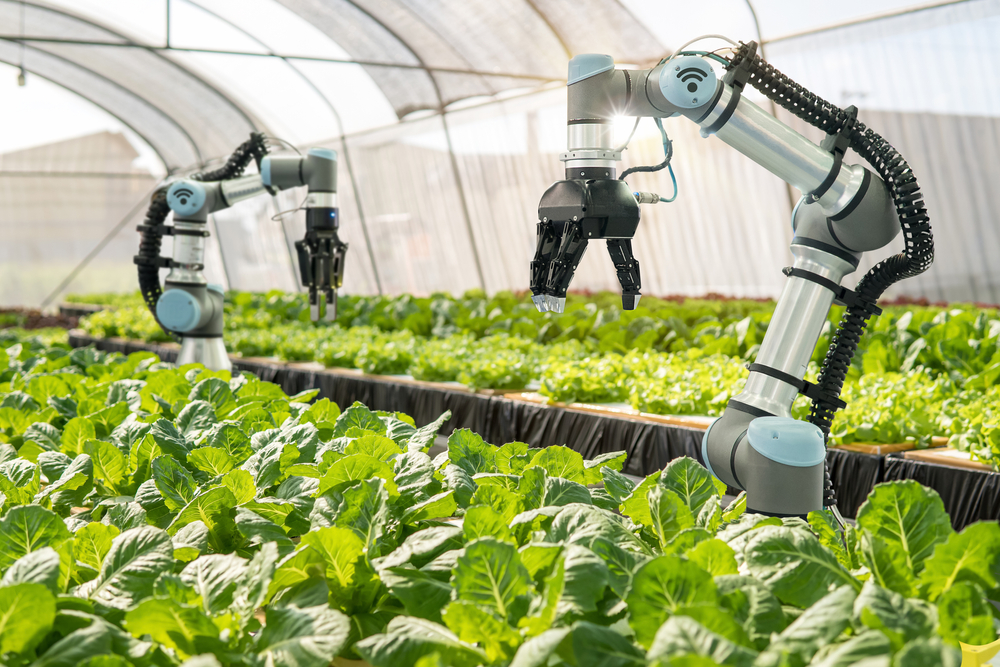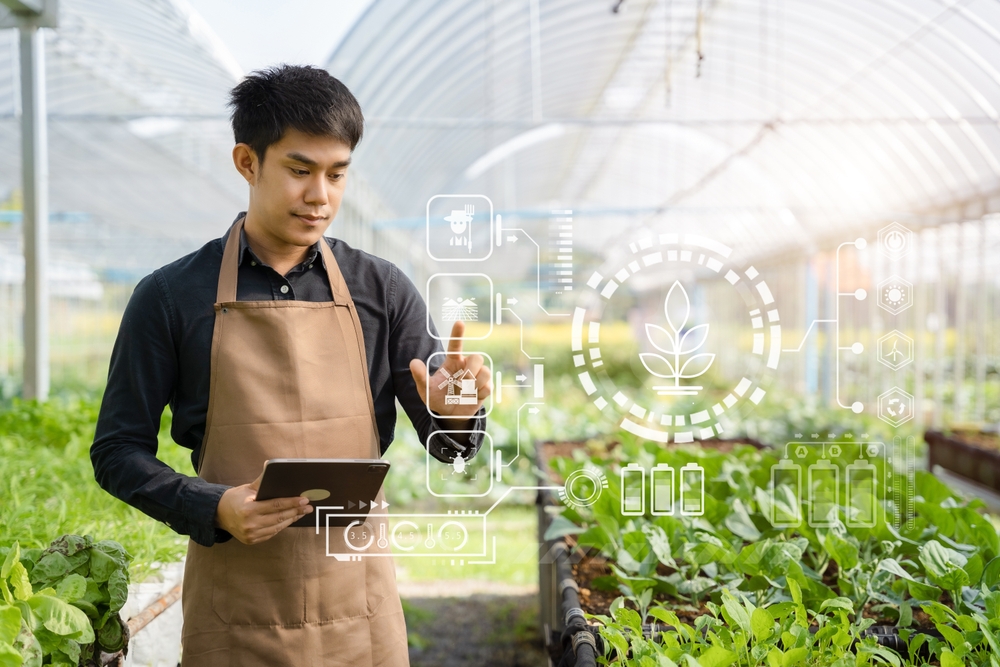Across the great stretches of our farmlands, technology is subtly but significantly changing the long-standing agricultural profession. A new era for farmers worldwide is emerging, one that is centered on sustainable practices, drones, and precision farming. This article explores the ways in which technology is changing agriculture to promote sustainability, efficiency, and adaptability to global challenges.
Drones
Flying Over Fields, Transforming Perspectives: Despite their military beginnings, drones are now essential tools in contemporary agriculture. The way farmers monitor and manage their crops is being revolutionized by these unmanned aerial vehicles. Drones with sophisticated imaging equipment give a bird’s-eye perspective of the fields and reveal previously unthinkable insights.
Drone-captured aerial imagery helps farmers spot disease outbreaks, pest infestations, and stressed crops. Because of the early detection, targeted intervention can be implemented, minimizing the need for extensive pesticide application and its negative effects on the environment.
Drones also make it easier to create intricate topographic maps, which gives farmers a better understanding of the drainage patterns and contours of their fields. Soil erosion prevention and irrigation strategy optimization are made possible by this information.

Precision Agriculture: The Skill of Targeted Production
By utilizing technology to maximize agricultural yields and resource utilization, precision farming, also referred to as precision agriculture, represents a change from conventional farming practices. Precision farming is fundamentally based on data-driven decision-making, and a wide range of technologies are enabling this agrarian revolution.
Precision farming relies heavily on GPS technology, which allows farmers to map their fields precisely and track changes in the properties of the soil. Moreover, soil sensors help by measuring the amount of moisture and nutrients present, which enables farmers to precisely adjust their fertilization and irrigation schedules.
Today’s machinery, with its sensors and computerized control systems, makes planting, harvesting, and spraying more efficient. By doing this, waste is reduced and resource utilization is optimized, which eventually boosts productivity.
Sustainable Agriculture: Preserving the Planet for Next Generations
Sustainable farming methods are now essential in a time when environmental issues are major concerns. This paradigm shift is largely the result of technology, which harmonizes agricultural practices with ecological balance.
Drones and precision farming both greatly reduce the environmental impact of agriculture, which promotes sustainability. Farmers minimize waste and lessen their influence on neighboring ecosystems by carefully controlling inputs like water, fertilizer, and pesticides.
Farmers are now able to make well-informed decisions about cover crops, crop rotation, and other regenerative practices thanks to the integration of data analytics. These practices reduce the agricultural sector’s impact on climate change by improving soil health and aiding in carbon sequestration.
The creation of intelligent irrigation systems that modify water usage in response to current weather conditions and soil moisture levels is another example of agro-tech innovation. This keeps crops getting the right amount of water for healthy growth while also conserving it.
Opportunities and Challenges: Managing Agriculture’s Future
Agriculture can benefit greatly from technology, but there are drawbacks as well that should be carefully considered. For small-scale farmers, the upfront cost of adopting cutting-edge technologies can be a barrier. Comprehensive training programs are also required to guarantee that farmers are able to use these tools efficiently.
Concerns about cybersecurity also surface as agriculture becomes increasingly digitally integrated. Preserving confidential information, such as crop data and farm management procedures, is essential to preserving the integrity of the agricultural ecosystem.
Nonetheless, the advantages that technology offers greatly exceed the difficulties. Agriculture’s sustainability and efficiency could be further improved by combining artificial intelligence, the Internet of Things, and big data analytics. The way we approach food production could be completely changed by intelligent farming systems that are constantly learning and adapting to changing conditions.

Conclusion
In conclusion, the way that technology has affected agriculture is evidence of how our relationship with the land we live on is always changing. Drones, sustainable practices, and precision farming are not just catchphrases; they signify a fundamental change in the way we view agriculture in the twenty-first century. We are cultivating not just crops but a future where agriculture is robust, sustainable, and able to feed a growing global population as we navigate the difficulties and seize the opportunities that technology offers. A bright future for farmers is assured by this union of tradition and innovation, which will keep their fields productive and in harmony with the delicate balance of our planet.


